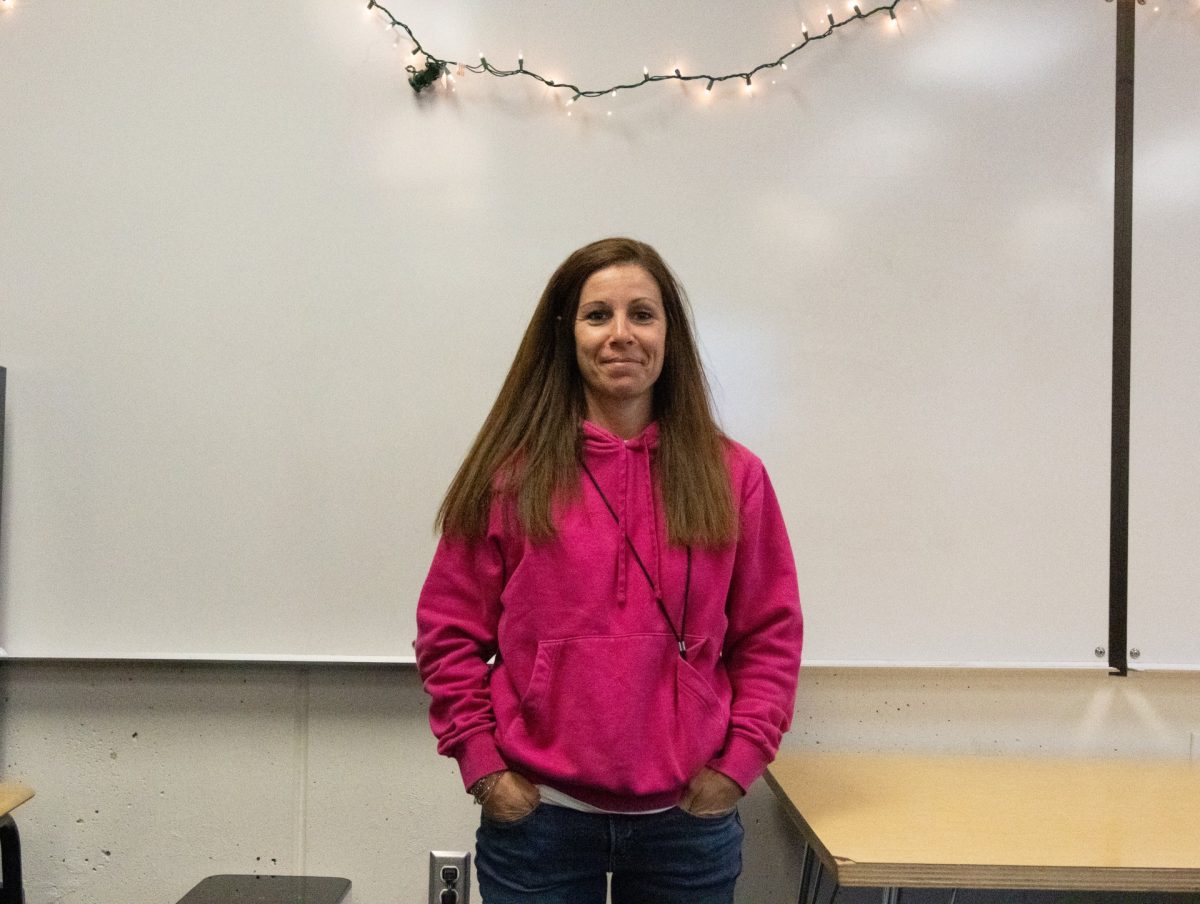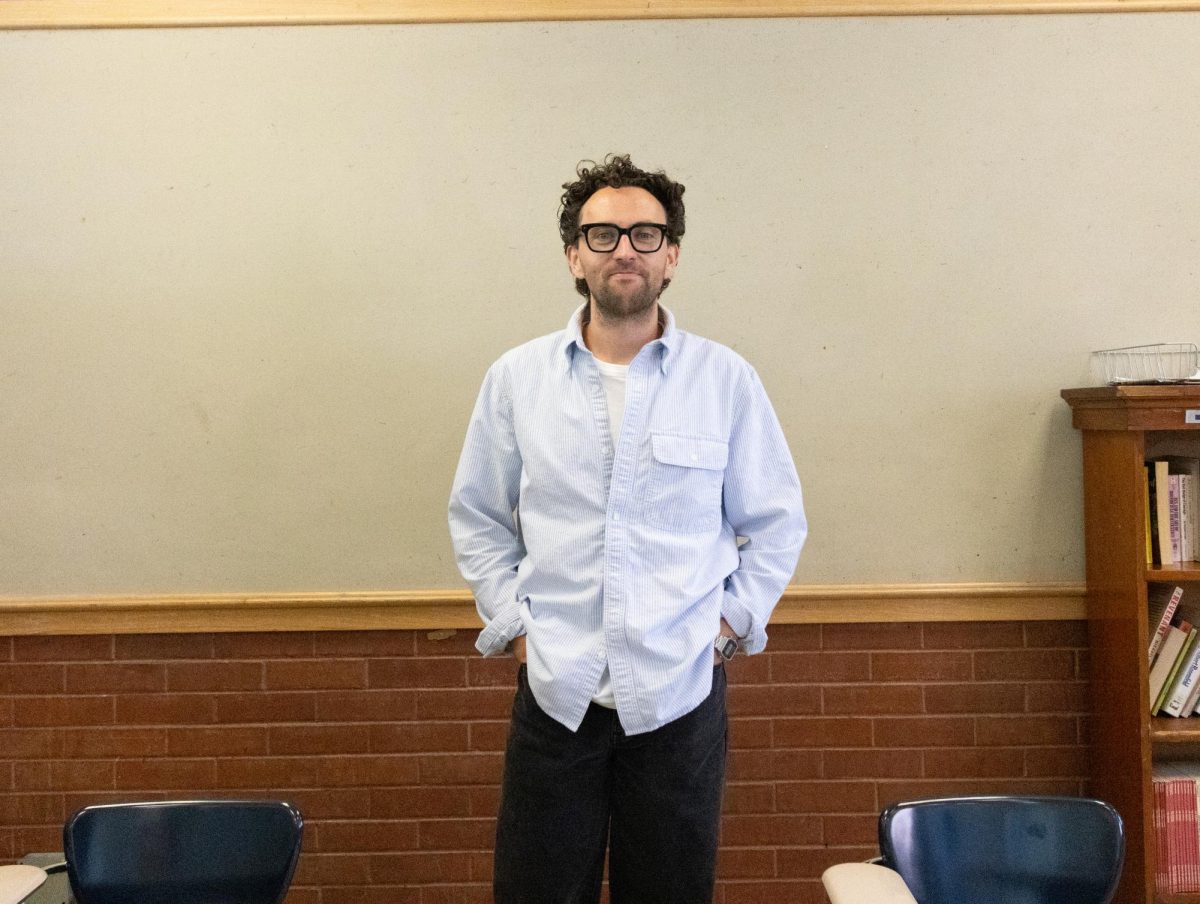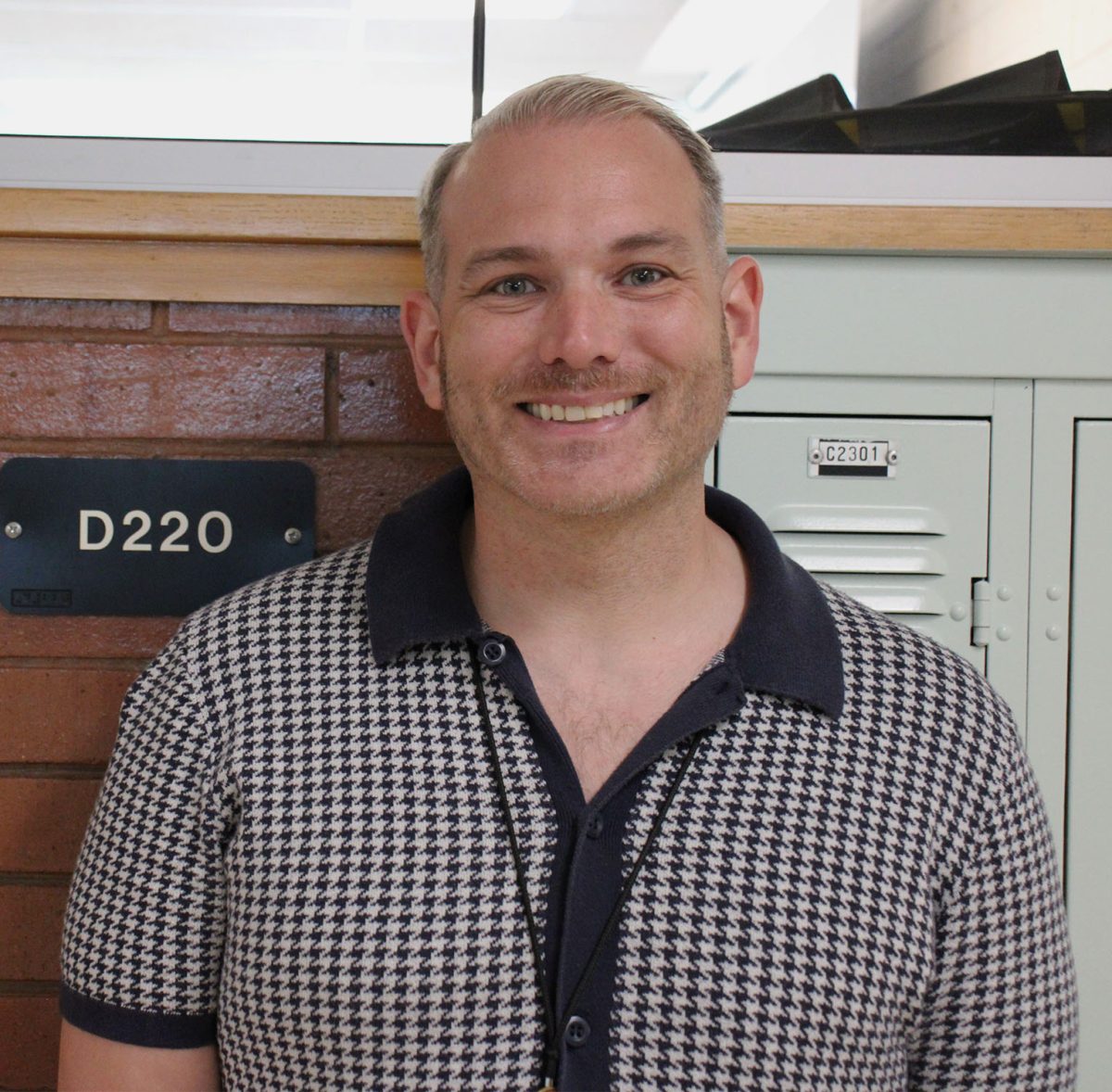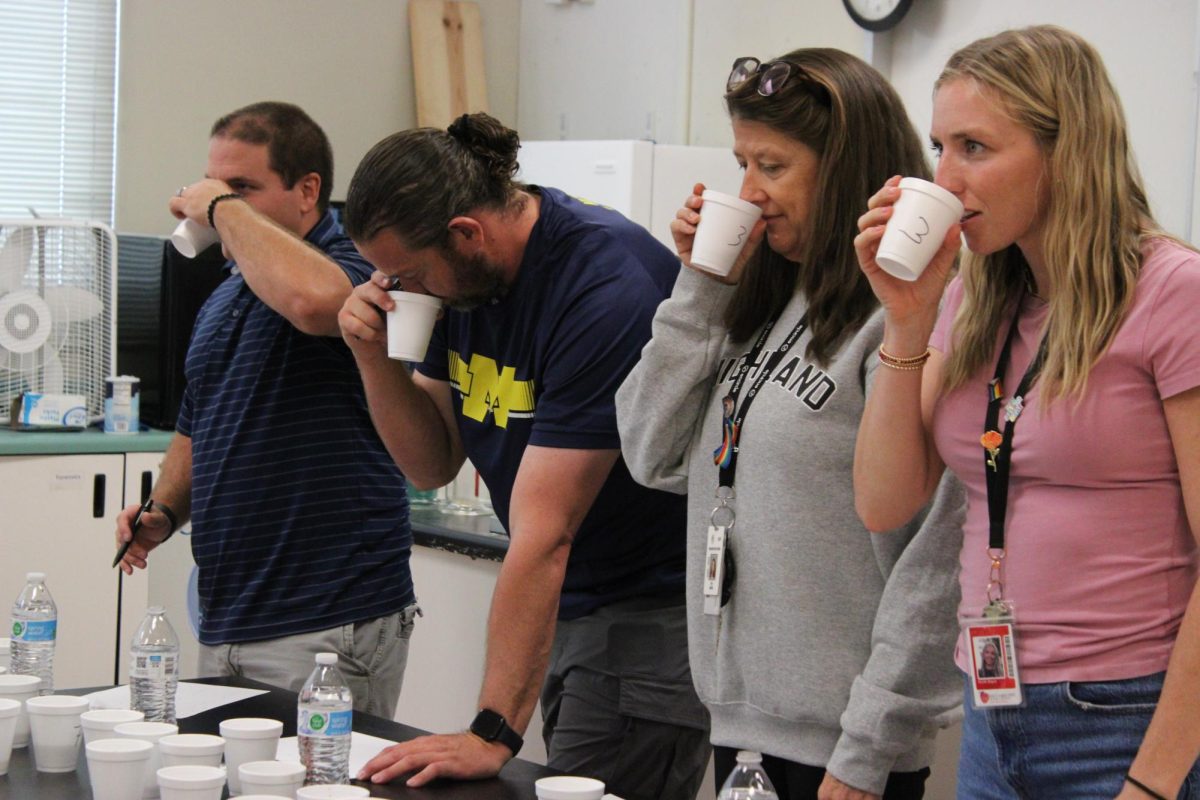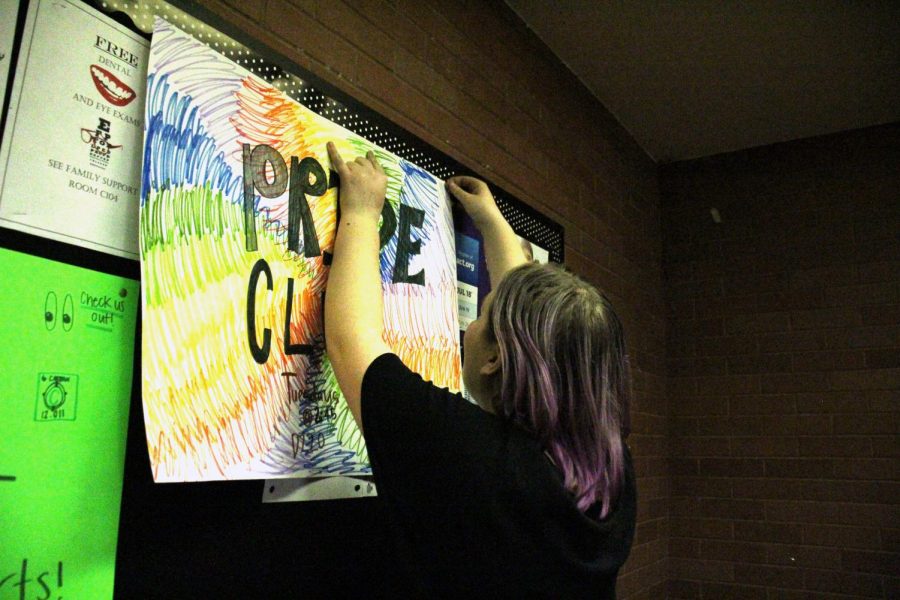Parents, Pride, and Permission
Permission Forms Can Cause Stress In Organizations Like Pride Club
Pride Club president Grace Haws hangs up Pride Club Poster in the stairwell.
January 7, 2020
Most required parent forms are harmless, something with a quickly scrawled signature that attracts no more than one glance. But not all permission slips are created equally.
Sometimes asking for permission can be extra awkward—especially when it’s about joining the gay-straight alliance (or GSA). Some students say it can lead to forced coming out or having a big conversation before students are ready. They can be put under the parental microscope.
That close up inspection and parent permission slip requirement came into effect in 2007 with HB0236.
It says, “A school shall limit or deny authorization or school building use to a club or require changes prior to granting authorization or school building use as the school determines it to be necessary to[…]whose proposed charter and proposed activities indicate students or advisors in club related activities would as a substantial, material, or significant part of their conduct or means of expression[…]involve human sexuality”.
HB0236 is saying it’s okay for a school to deny a club or require changes if human sexuality is a focus, with human sexuality being beyond just biological—it’s also emotional and spiritual according to many scholars like Clint Bruess, past dean and professor at Birmingham colleges.
Other parts of HB0236 require detailed lists of the club’s who, what, when, where, why, and how. If these forms aren’t used or strictly followed, a club can be discontinued and the school can be sanctioned.
Senator D. Chris Buttars was instrumental in HB0236, in funding the Drug Offender Rehabilitation Act and in restricting abortion and same-sex marriage. He made many anti-LGBTQ+ comments and questionably racially insensitive comments too.
Buttars was inspired by a 2005 Provo parent protest against an inflammatory high school GSA. He said HB0236 exists for uniformity and protection against socially inappropriate behavior, probably referencing the section on human sexuality.
“If a gay-straight club wants to meet together, as they say they do, just for friendship, I have no problem with that[…]but I think school districts should have the authority to do whatever they need to do protect their schools — the law gives them authority to make decisions to protect the physical, emotional, psychological or moral well being of students,” Buttars said to the New York Times.
HB0236 helps with liability issues, like injuries in athletic clubs and sports, and it gives parents the chance to understand their child. However, it ends up taking away access to safe spaces and GSAs. Grace Haws—the Highland Pride Club president—highlights how Utah especially, as a heavily religious state, may have trouble seeing how a family home isn’t always safe.
“What the school district doesn’t realize is that sometimes your home isn’t a safe space. I think that’s confusing for a lot of people in the district because we’re in a state where religion is so important and it’s a family-based religion. They assume that the home is always the safest place for someone, but for someone in the LGBT community it’s a little different,” Haws said.
In a family-based culture, HB0236 is important. It brings families closer together—and warm, dependable human connection is no doubt important—but this law strengthens family connection by sacrificing some students’ chance at voicing themselves and living.
The Highland Pride teacher sponsor, Jennifer Jacobsen, explained how a parent permission form can do more harm than good. She said that a student may want a safe space or GSA to learn outside of googling things, to connect with people in the same shoes, and feel generally welcomed. They might be closeted or honestly just curious, but when a parent form is required then the severity of the visit becomes set in stone.
“When it comes to parent permission slips, it disproportionately affects groups like Highland Pride…kids may be uncomfortable talking to their parents about it because of repercussions they might face with their parents, like, ‘Why are you going? Are you gay?’ And within that family structure there could be safety issues,” Jacobsen said.
Safety issues are of social, immaterial “what- ifs” brought up by HB0236’s parent forms that stop people from going to the GSA. They’re not to be taken lightly, encompassing homelessness, domestic abuse, conversion malpractice, bullying and eventual suicide.
Up to 40% of all homeless people are queer—according to True Colors United—and of those who are women ages 13-15 in New York City, the Hetrick-Martin Institute found that 50% of them had fled their homes because of familial corrective rape.
Conversion therapy happens too, where people are taught that their emotions and love are wrong. According to the American Psychological Association, some methods are showing an attractive picture of the same gender in conjunction with electrocution, forceful nauseating, or slapping. In extreme cases, this pseudoscientific clinic will chemically castrate or use ice pick lobotomy. Although it’s rare now, it used to be common to force a knife up the nose, break the bone above the eye, go into the skull, and slice off the frontal lobe.
School aren’t always safe either—cyberbullying and both physical and sexual dating abuse are two times more prevalent for lesbian, gay, and bisexual students compared to heterosexual peers according to a nationwide survey by the Center for Disease Control.
These pains add up, and the same survey also found that 47.7% of lesbian, gay, and bisexual youth have seriously contemplated suicide within the past year. The U.S. Transgender Survey also found that 40% of transgender adults had attempted suicide at least once, and 92% of those individuals attempted before age 25.
This long list of studies and statistics is here to show that the stress and pain from intolerance becomes concrete suicidal thoughts and intentions. These are realistic worst-case scenarios that punish for attending a GSA.
In contrast to HB0236, there’s Board Policy I-16: School and Student Clubs Equal Access Act.
It reads, “A student’s participation in a particular club may not be denied based upon the student’s sex, gender, sexual orientation, gender identity, ethnic group identification, race, ancestry, national origin, religion, color, or disability.”
Although this Equal Access Act is reassuring, it’s largely ineffective. It only allows students to attend any club, like the GSA, on a legal level. It’s more of a social restraint. Students still face immense pressure and possible consequences by walking through the door of D220 into Highland Pride.
Buttar’s HB0236 and the Equal Access Act create quite a pickle between parent involvement and youth laxity. If a club’s focus is human sexuality and gender identity or diversity on the spectrum of human nature, it’s supported by the Equal Access Act—but it also comes into conflict with HB0236 that creates a daunting parent signature and social repercussions.
That’s why Highland Pride is still running strong. They’re working towards making an open safe space where anyone, queer or questioning or not, can have a good time and be themselves. A home away from home—but where should the line be drawn between familial security and distance for growth?





